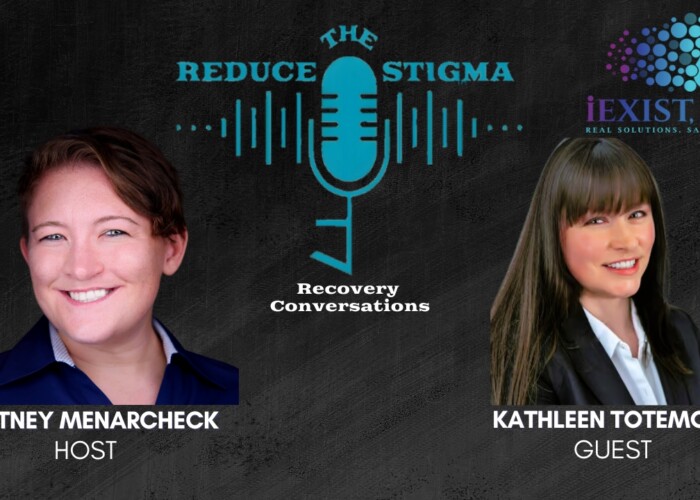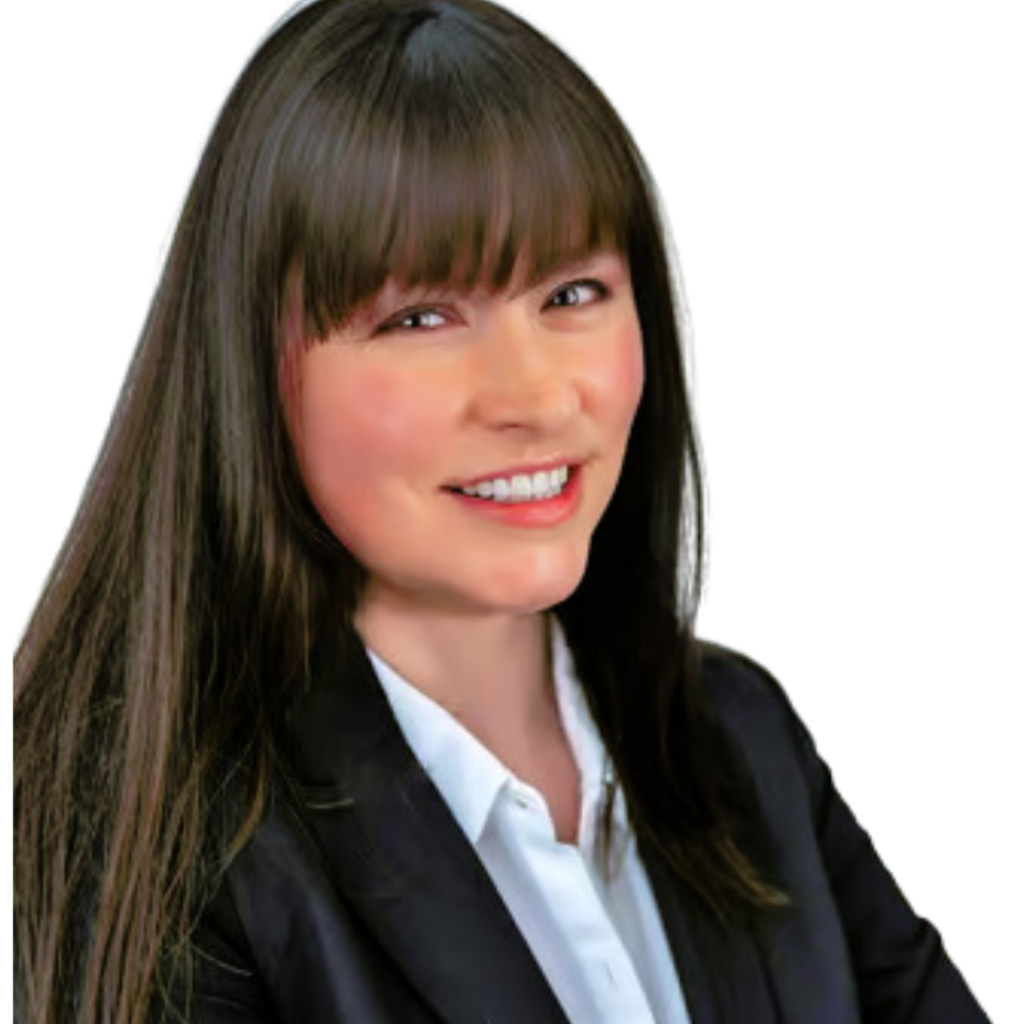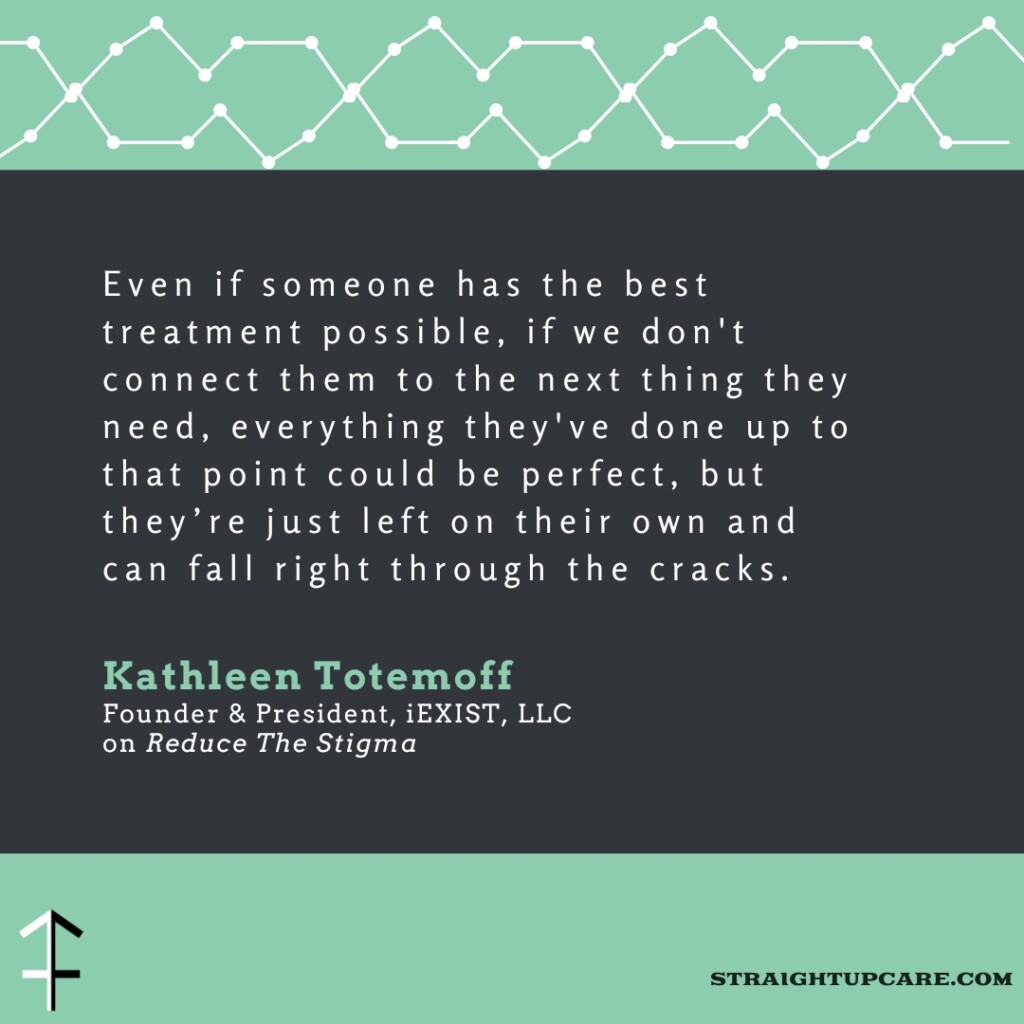Whitney Menarcheck (she/her) (00:02)
There are those people you talk to who you get really energized talking to and you can go off in so many different directions. That is exactly what happened with today’s episode where I went all over the place with our guest because there’s just so much to talk about. She’s doing incredible things and really using her talents not only to support others, but to model how it go about really chasing your dreams and being okay with making transitions in life and while also reducing stigma around addiction and behavioral health as there’s just so much, so much good in this episode and I can’t wait for you all to hear it so stay tuned and get ready to be inspired as we reduce the stigma.
Whitney Menarcheck (she/her) (01:58)
Hello and welcome to Recovery Conversations. Today’s conversation is with Dr. Angela Colistra, a therapist, professor, researcher, and consultant specializing in addiction and behavioral health. Welcome, Angela.
Angela Colistra (02:12)
Hi, thank you so much Whitney, it’s great to be here.
Whitney Menarcheck (she/her) (02:15)
Thank you for coming on. It’s wonderful to have you. I’m excited because you and I have really been in touch for the past mostly six months, but we’ve kind of been orbiting in the same space for a while. And I’m excited for everyone to hear about you because you’re doing some really amazing work.
Angela Colistra (02:36)
Yeah, yeah, 100%. It’s been great to like, it’s always great when your paths cross with somebody when you’re doing work and it’s like, you know, kind of in the background, but you’re like, our paths have crossed. And then we come together and we get to know each other and we realized, wow, there’s a lot of synergy there and a lot of interesting things that we didn’t know about each other. So it is great to be able to work with you and talk with you on these topics that are so important to both of us.
Whitney Menarcheck (she/her) (03:06)
Yes, absolutely. And you know, I started following you actually on LinkedIn a couple years ago, and I was just seeing the positivity in the messaging that you were posting and following your work and you were involved in the latest ACM criteria. Can you tell us a little bit about what you worked on in that role?
Angela Colistra (03:31)
Yeah, I was a writer on the chapter on co -occurring care. And if you’ve worked in the space of addictions and or behavioral health throughout the years, maybe you’ve realized that organizations either just do addictions work or just do behavioral health work. And if you’re at one of these places, you realize it’s nearly impossible to just do one or the other. We always talked about like needing to do co -occurring care, but it was really hard. It was really hard to do that. And for a number of reasons, right? It’s not just like, we should be doing this. And so you turn it on. There’s lots of things that impact our ability to do co -occurring care. And so we would do addiction treatment over here. And then we’d send somebody to the mental health system to get mental health care. And there wasn’t a lot of integration. So this particular chapter was focused on what does it look like for a system to be co -occurring capable and that all systems moving into the future should be co -occurring capable. And there’s this baseline or this threshold of co -occurring care that if you enter into healthcare or addictions treatment or mental health system that it should be a co -occurring capable system. And then for the higher level systems or if you think about higher levels continuums of care that the ASAM criteria puts out that they should have co -occurring expanded care and what does that expanded care look like? So I got to spend, you know, better part of, I guess it was like a year writing that chapter with other clinical experts, either in addictions or the mental health space and look over, you know, to put the first kind of draft together, send it out for public comments, dive into those comments and put together what those systems could look like in the future and then see the work that ASAM gets to do behind the scenes around advocacy and payer systems and the work that we need to do to get there. In a lot of ways, you might look at that chapter and think it’s aspirational and there’s work we need to do to be able to get to a co -occurring space. Yeah, so that’s what I got to do and it was certainly one of the highlights of my career to be able to lay the foundation for that work and for systems.
Whitney Menarcheck (she/her) (05:56)
And for those who don’t know, it’s really a…In many ways, we’ve been talking about co -occurring dual diagnosis, recognizing the connection between mental health and addictions and such. And yet we still had that siloing. Like you said, here’s your addiction treatment or substance use treatment. Here’s your mental health treatment. And I know in my experience, it was sometimes a battle of, well, we won’t take them until they X or, but we’re not capable because they’re not whatever, and so we’ve known for a long time that the two can’t really be pulled apart, but only recently, especially with this movement with the ASAM level of care criteria, is it saying, no, no, no, enough making excuses. Everyone needs to be co -occurring capable. But what is co -occurring capable? Can you explain that?
Angela Colistra (06:51)
Yeah, I mean, I probably might get some of this not exactly on point, but like at its most kind of foundational piece, you can think of like, there is a baseline of being able to treat depression, anxiety and trauma from the front, from the minute a patient walks through the door, right? That you can think about an organization being trauma informed or an organization everyone in the organization should have like for example mental health first aid right some of these like in that you know what can we do at the baseline level if you don’t have a prescriber you don’t have a 24 -hour psychiatrist right and so we should be able to treat depression anxiety trauma we should be able to screen evaluate and people shouldn’t have to be able to like have doors closed if they don’t, you know, if they can’t get access to that care, right? Like you said, like we are not gonna treat your substance use, we’re not gonna treat your mental health till you treat your substance use. So it goes both the ways. And so mental health systems need to be able to do or consult with a baseline of substance use disorder care or withdrawal management and things like that, or to be able to partner with their community partners to make sure that they’re capable of providing that care. It goes a little bit beyond just giving a referral number. So this goes both ways. And when you think about 24, like co -occurring expanded care, we’re thinking about having a prescriber or having somebody available to consult with.
Whitney Menarcheck (she/her) (08:12)
That’s it.
Angela Colistra (08:35)
On a regular basis, a psychiatrist, things like that, because you have higher level kind of needs in the higher level realm. When you think about that mental health diagnosis, you might think of like higher level untreated mood disorders or untreated schizophrenia or schizoaffective disorders, or even somebody that has major depressive disorder and has higher level of suicidality on board, you know, not just thinking about it, but has a plan and intent to carry it out, right? So we need to have systems that are co -occurring expanded in our care. But at the baseline, you know, everyone should be trained, trauma informed, everyone should be able from the front office through the back office have this baseline of up treating some of these depression, anxiety, more common mental health disorders and people shouldn’t be excluded from care until they do that. We know systems are really hard to navigate and you should be able, no door should be the wrong door. Whether you enter in the mental health system, the healthcare system or the substance use disorder system, they should all be co -occurring capable.
Whitney Menarcheck (she/her) (09:40)
Thanks. Yes, please. That would be amazing because we know it’s about the whole person. So why are we trying to separate it out? And as if you can and it’s like the chicken and the egg, which came first will in co -occurring, they feed each other and they, you have to address them together. And it was one of the things that I really loved about the newest edition of the criteria was saying, no, we’re setting a higher bar as the minimum and to be part of that work group, I mean, it’s a reflection of your expertise, the respect for you in the field, and certainly came from many years working, advocating. Can you take me back to the beginning and what led you to even be interested in the work that you’re doing, particularly co -occurring, because I know that’s really where your space is.
Angela Colistra (10:53)
Yeah, so I am a licensed professional counselor and I’m a certified advanced alcohol and drug abuse counselor and I’m a clinical supervisor in the space too. But really my pathway in is my upbringing. I was born and raised in West Virginia. I currently reside in Pennsylvania, but I spent the first two decades of my life in West Virginia. My family could be the poster child for social determinants of health. And you know, myself included, so addictions, mental health, high risk youth, was, youth was just all around me, it was probably pretty normal way of existing. A lot of trauma, a lot of pain, a lot of despair, people, but also a lot of love, a lot of community, like a lot of just, you know, teachers were, you know, everything, school was everything. And so, it really was like a village sense of care, but a lot of people were struggling and, you know, and so getting into college really becomes like the first time I kind of escape the trauma of everything just like what I thought was normal. And I decided to major in psychology and I was also working like I’ve always worked like two or three jobs because of poverty. I also had to figure out how I was going to feed myself in college, how I was going to pay some of the bills and offset some of my student loans. And so like, you know, people think about like their college experiences, like going with their parents and touring campuses and like, you know, my first day on campus was like, I need to find a job, you know, today, like, how am I going to eat while I’m here? And, you know, I think we’re starting to do a better job at talking about kids and college that are maybe homeless or not homeless, unhoused or food insecure and struggling. But we weren’t talking about that. It just was kind of assumed if you were in college, you were well off. But like every day was like part of my reality. Like, how am I going to survive here? I’m like, I just turned 18. I would get up. I worked at a cafeteria and I had to be there at like 5 a in the morning.
Whitney Menarcheck (she/her) (12:58)
Yeah.
Angela Colistra (13:17)
and it was dark. I didn’t have a car or anything. I would run and West Virginia is like all these mountains. So imagine I’d like, you know, cause I was, you know, scared. It would be dark out and run to work in the cafeteria. And then I’d get to class at like eight 30 or something. I struggled to stay awake and I’d have a graduate assistantship eventually in the psychology department. And because of my background, I didn’t even realize how deficient I was by the time I got into college. I think I got the lowest possible score you could get on your ACT. Like, I think I got like a 16. It was like, I don’t even know what the rate, but like everything just feels like a miracle that I got in, you know, that I didn’t, you know, that I got into West Virginia that I was able to fill out the FAFSA because of my older sister and get student loans. I was able to find jobs to buy, you know, to support myself. But, you know, I think looking back, I’m kind of, and like, I get sad for myself, but like, I was so kind of like, like out, like living in this nice dorm room and like, there wasn’t all this trauma and intensity around me. So like, I can really just remember feeling free in a lot of ways for the first time. You know, very quickly I took like, I took a job at a group home while I was in college taking care of people. My manager was an LPC. And then I had this model. I was like, I’m going to go back and get a graduate degree. I loved working in this group home so much so that they said I was working too much over time and that they couldn’t pay me that much. And I said, well, when I reach my quota, just stop paying me, I guess. Does that mean I’d
Whitney Menarcheck (she/her) (15:02)
Wow. my god.
Angela Colistra (15:12)
can’t come or shouldn’t cover the shifts. But like, I just really learned that I loved helping people. And that was really quite healing for me, hence, you know, CRSs and the work that they get to do. And as I, the more I helped others, the more I started to heal. And I’m not going to say I wasn’t struggling with depression, spend weeks in bed, I take weeks off of class, I wouldn’t shower. I mean, I had untreated depression, the trauma kind of that existed in me and the anxiety that would rear its head was really intense. And the way I found my way through that was staying focused on my education, building my career in helping others. I got my graduate degree in addictions and mental health and community counseling and substance use disorders. I add on the substance use disorders thing later, I get into my graduate degree and they said, you can also get a master’s in addictions. And I thought, my God, everybody in my life is struggling with an addictions. Maybe this could help. Not thinking that I would go and work in it. I didn’t even really have an understanding, but like, you know, this was the early 2000s and I was already losing people from opiate overdoses at alarming rates at this point. I had lost a number of friends from alcohol and drug use and family members. And so I thought I learned so much. Like I thought I learned about methadone for the first time. I thought, my gosh, this could help so many people. I learned just about harm reduction, which we weren’t talking about, like all of these things. And again, I continued to heal as I learned to be a helper. And then from there, you know, I worked, I went right into working at an opioid treatment program, OTP program. I was a therapist in a methadone treatment program. That program had a full continuum of care and that’s where I got all my licenses, my LPC and my addictions credentials. And I eventually decided to go back and get my PhD in counselor education with a kind of focus on taking care of therapists. And at that time, I was getting my clinical supervision credentials and my mentor was a real mover and shaker in the clinical supervision space for addictions counselors. And so I did my dissertation in that space. It’s like, how do we stay well? Why we do this work? And again, everything’s kind of like a parallel process for me, as I’m healing and grounding more in my career and the right people are kind of coming in. And so how did I get into this space? It’s, you know, it’s really from my humble beginnings and that there really wasn’t a lot of help and I just felt like, well, maybe I can help.
Whitney Menarcheck (she/her) (18:23)
And you are, I know clinically, I’m sure working with you as a therapist, a counselor would be amazing. And then the work you’re doing to change systems, to change how other counselors are trained, healthcare professionals are trained, that’s that reverberation effect. And how incredible, you talked a lot about that parallel process, that healing. And I think that happens for a lot of counselors in a way, because a lot of…I’m also a counselor. A lot of us get into the field because of something we went through and that desire to help someone else or maybe lessen the pain that someone else would feel of a similar experience, which is why that can also be a high burnout field. We often think about pay as part of burnout, but we don’t always look at why did someone go into the field in the first place. And I’m curious with your dissertation, with your work in that space, how did you see the correlation between those with that lived experience that drove them into it and their well -being down the road?
Angela Colistra (19:32)
Yeah, whether somebody was, you know, transparent about their lived experience or not, right? It’s not always a safe space. Like we literally, when I came into training therapists, we would literally tell them that, I remember like some of the books, the textbooks I use is like not a good reason to go into therapy if you yourself are healing. And I used to think, who isn’t healing?
Aren’t we all healing? Like you needed to come into being a therapist as this like perfect person, like who in their 20s is a perfect person? And so, and again, a lot of these books are written from kind of a male voice, like they’re male led authors. And, you know, it’s just like a different voice, right? So, I think reaching back and helping people along our journey is super important part of our own healing journey. And so whether you’re in recovery and you’re out with that or not, but, you know, helping people rise up and, you know, kind of rising up together, I think is a super powerful thing to do. However, I think you need to do that with boundaries and skills because you can, you could maybe give too much of yourself and exploit, like exploit yourself along the way or maybe not have a lot of like personal or kind of awareness of your body. Like if that numbing sensation is normal, you can learn to numb through your work and it becomes a way to distract you from yourself and what’s going on internally. And you know, I’ve certainly been there too, but like, my dissertation was on like, how does spiritual well -being predict job satisfaction and burnout on addictions counselors? And so what happens when we begin to, whether it’s through religion or existential well -being, like spiritual well -being, you don’t have to attach to religion. But when we literally connect to our breath and our kind of own inner knowing,
you know, what permissions are we allowed to give ourselves at work, whether the job has allowed that. And so, I mean, obviously, I don’t think like the higher somebody’s spiritual well being was, the more satisfied and the less burnout they were. But we really weren’t able to get into the weeds about what that was. But the business that I’ve built is really around people learning to women specifically kind of connect to their breath. Slow it down, align with what they’re supposed to be doing and what’s not meant for them anymore. Just because you’re good at something doesn’t mean you need to necessarily always be doing it. And so it’s okay to put something down, right? And giving yourself permission to do that, giving yourself permission
to not overwork, giving yourself permission to have boundaries. And that you’re still worthy of all these things in your life but learning to slow down and spirituality really the Latin word is spiritus which is defined it breaks down to breath and so when when you connect to your breath when you slow down enough and listen to what you need but all throughout your life you should be evolving and so even for me, when I put down my therapy work, I was working with patients with complex trauma and I was really good at it. And I got so much like joy watching somebody kind of come out of this trauma frame and doing such intense work, right? But that took so much from me. And at some point when I connected to my own spiritual well -being that I knew if I continued to choose that work, that work, I wouldn’t be able to birth the work that I know I wanted and was ready to birth. And that I didn’t have the energetic bandwidth to do both anymore. And that I could, with love, put that work down. And I could grieve putting that work down. I could be sad about putting that work down and also give myself permission to say, it’s now time to put this down and to birth this. And that was my business. But like, when I said it, I said, I have not come to this decision lightly. But we only have so much bandwidth and so much energetic capacity. And as the seasons of our life change, we need to slow down. We always need to slow down, whether we do that through clinical supervision, whether we do that through
yoga practice, whether we do that through running, whether we do that by sitting in church on Sunday.
Whitney Menarcheck (she/her) (24:49)
Going and seeing our own counselor.
Angela Colistra (24:51)
Or go into our own therapist, right? Like whatever the medium is for someone, you need to slow down enough to give yourself permission to continue to evolve in your career and in your life, but staying busy. And I think that’s the one pitfall I see people kind of working from this recovery space is they’ll give all of themselves up and companies will take it and more.
Whitney Menarcheck (she/her) (25:15)
Yes. Yes, and I know that you mentioned CRS and that’s certainly for anyone who doesn’t know that’s a certified recovery specialist that is the certification for a peer specialist in Pennsylvania, specifically a person in recovery from substance use. And we’ve seen that happen where these are individuals often very fresh out of their active use and they are finding such joy and purpose and are so thankful many times for what they have found in their life that they want to give it to others that they are sacrificing their recovery unintentionally and there are people unfortunately businesses or organizations that will take advantage of that and hearing what i’m hearing it throughout is this intentionality of the energy the commitment the you know, I don’t think we’d like admitting that we have only so much to give. We want to say, but if I just sleep less, if I just do this a little bit more, I can just expand my bandwidth. But that’s when it breaks. And so, you know, thinking about all of that and how that all works together, I’m so glad that you shared about stepping away from clinical work and that you can be really phenomenal at something and decide it’s no longer the thing that is your purpose or where you want to put that energy. How freeing of a feeling to be able to give that’s like a gift to yourself. Can you tell us a little bit more about that process for you?
Angela Colistra (27:06)
It didn’t come kind of lightly. I do have an active, a lot of my therapeutic healing work now comes through my own somatic practices and meditation and journaling. So I do have an active yoga, meditation, journaling practice. Do it right in the living room. I want my kids to witness, you know, what we do, what kind of like take it in and it started to kind of pop up there. I wasn’t seeing patients on a full -time basis, but I was seeing complex trauma patients once a week. I would see about seven or eight patients a week. And so I probably had a case of like 25, and they were all complex trauma. And it was amazing at kind of this last phase of that therapeutic work energetically, I no longer kind of keep myself numb for myself. Like if I would wake up on a Friday and feel that I was just associative or walking around kind of numb, I knew I needed to get on my mat, I needed to ground and I you know, and I just started noticing how long it would take me to kind of come back in to my body. And as somebody that had a lot of trauma in my childhood, my A score is a seven. I have to work really hard, you know, like my life has been stable for many decades now, but like, I have to work really hard and people don’t see that, right? Like I have to have an intentional practice to keep myself stable. And I was just realizing how long it would take me. And then it started kind of coming up in my meditation practice. So in meditation, you’re just kind of an observer of things that come through and over time, you stop thinking and things start passing through you. And this continuously was passing through me. And the other thing that was coming up was that I was doing this work with women, helping them identify the things in their careers that were deteriorating their mental health and their recovery. And I was doing that work on the side and I knew that to fully kind of step into this other healing work that I wanted to do, that I had to put down, I started to see that I had to put this down. And I was coming to like a good place with a lot of the patients on my panel. And so the timing of that was right. So I really just kind of kept myself open to it. Now, you know, it’s not like you can just go to your job and say I’m gonna stop doing this part of my job, right? And you’re gonna keep on paying me but luckily I thought okay, I’m going to Put this down with no expectations and just reclaim that time and so this one day a week I’ll pull my roll back and
Whitney Menarcheck (she/her) (29:53)
It’s great.
Angela Colistra (30:13)
What happens when you create space. So you know this kind of concept of like when you clean out a closet in your house or you clean out a garage like clearing clutter? That kind of same concept applies in your life because after you clear clutter from your closet the other new things start to come in and so maybe somebody will be like, I saw this and thought of you and they’ll buy you something or, you know, you all of a sudden have space for new energy. And that’s essentially, you know, I didn’t know exactly what I was going to do, but I knew I needed to put this down to line and have the capacity for something new to come in. And so that’s a little bit about just like, and that’s, you know, the work that I’ve started to grow with other women, and that’s what started to come into my life. Other women asking me to mentor them or help them with their career transitions. And I did. I’ve had the pleasure of watching a woman leave a 21 -year career and starting a whole new career in interior design and being successful. Or a woman who was a manager for 20 years level up and finally get that director role. Somebody who was a case manager, move into her therapy, get her therapy licenses, move into being a therapist. A teacher who had been a teacher for like, you know, 20 years and she was missing her kids’ lives and wanted something where she could still contribute to education, take an executive director role at an organization that focuses on tutoring so she could pull forward all of these educational skills, I’ve got to like help a lot of women kind of pay attention to kind of what the season of their life is telling them and kind of what direction they want to go into and how to be brave enough to begin to step into that and ask for that. I think it’s brave work just like entering into therapy to do your trauma work is brave work or entering addictions treatment is brave work and this intentionality around the careers we build as adults is also really brave work.
Whitney Menarcheck (she/her) (32:38)
I am just so energized hearing that because I’m thinking about the evolution of women in the workplace and how hard women have had to fight to get to those higher positions and then there’s almost like a sense of obligation of, I’ve put in my time, I have to maintain it. And to be able to help a woman put herself first and say, you’re allowed to step away from this and go on to the next or go pursue your passion or be home with your kids more. That’s incredible and I don’t hear that often.
Angela Colistra (33:21)
Yeah, yeah, like, I think we’re all kind of trying to figure it out in private, right? And you could be in a job you love and it could be harming your recovery and your mental health. You could be showing up and performing and getting all the accolades, but inside you feel like you’re dying. And to me, like, what do you do with that? Right? Who wants to listen to somebody who like is like, you know, you’ve got the, you’re so successful, you’re doing all the things you’ve always wanted to do and to say, but I’m not happy. In fact, I’m having panic attacks over this or something isn’t right, it’s causing depression or I’m wanting to drink, even though this is everything I’ve always wanted. Right, right. Shouldn’t you be content? And for women, you were so good at pleasing, performing, perfecting, making things good for others. And we do that really well. And we get a lot of accolades for doing that. But what does it look like when we begin to do that for ourselves? And I’m not saying men, this work is similar for men. I have just focused on doing this with women. And it’s been like,
Whitney Menarcheck (she/her) (34:36)
Shouldn’t it be perfect now?
Angela Colistra (34:38)
A joy to just be a part of people’s stories. Just a couple weeks ago, I had one of my coaching clients reach out to me and share that, you know, she finally, you know, was able to align with the role that she kind of envisioned and built through the coaching work. And she just reached out to thank me. And it’s, it’s so kind of like when you’ve been at a job for so long, or if you’re older, you think this is it. This is it. I just need to learn to be happy. But I’m here to tell you, if you’re not happy, this is not it. And that’s OK. We don’t have to grin and bear it. And that’s OK. And you don’t need to necessarily know what it is. But we can learn to do it.
Whitney Menarcheck (she/her) (35:20)
You don’t have to grin and bear it. You’re allowed to.
Angela Colistra (35:34)
Redefine your non -negotiables in the season of your life and begin to align and clear out with what is possible for you to begin to align with that new kind of energy that you want to put out is the best that I can say. And that’s all career related. We spend so much time in our careers. Like I spend more time in my job than I do with the people I love. And so I hope most women are in a place that loves them back and appreciates them back and respects them back. And if that’s not happening, you don’t have to grin and bear that.
Whitney Menarcheck (she/her) (36:12)
Right. And so much of our work, our career becomes part of our identity, which I’m sure is a big part of the coaching you do is to what, who are you if you aren’t exposition?
Angela Colistra (36:28)
100%. And I mean, and I asked myself that same thing, like, who am I if I’m not a therapist, right? Like, I’ve been a therapist since 2005. Like, who am I? And I, I mean, not to brag, but like, I was a really good therapist. Like, I, you know, I, I was good at the craft I was doing.
Whitney Menarcheck (she/her) (36:45)
Right, absolutely.
Angela Colistra (36:54)
Yes, so much of our identity is tied up. And for women in particular, so much of our identity is tied up into helping others. And we forget who we are along the way. And we almost forgotten to allow ourselves space. And so a lot of the work that I get to do is creating space for women to be intentional and thoughtful and to begin to put one foot in front of the other and to support them along the way. And even though I’m not doing therapy, a lot of those skills transfer and I teach them a lot of the therapeutic skills that they can just use on themselves. So I teach them like the foundation of cognitive behavioral therapy and I teach them some of the tools that the questions I’ll ask them around readiness that come from motivational interviewing. But I take a psycho educational approach because I’m an educator.
Whitney Menarcheck (she/her) (37:45)
Yes.
Angela Colistra (37:50)
So I’ll tell them, you can ask yourself these same questions and this is what a therapist might do in therapy but with longer amounts of sessions and time, but you can certainly use your journals and your own kind of awareness of these skills to assess yourself. And so I teach them kind of the 101, MI 101, CBT 101, and I’ve been a professor teaching those courses.
Whitney Menarcheck (she/her) (38:17)
Yes
Angela Colistra (38:17)
Since 2008, so it’s really easy to give them like the baseline 101 and of those courses, why should somebody have to like get a college degree to learn the basics of MI and CBT when it can help them, it can help them on their journey.
Whitney Menarcheck (she/her) (38:33)
Right, right. Or why would they need to go into therapy? These are skills that could help all of us in our day to day life, not just because you have depression or this diagnosis or that. So I love that you’re integrating it because it is really applicable.
Angela Colistra (38:39)
Yeah.
Whitney Menarcheck (she/her) (38:56)
Those who are not familiar with CBT and MI, it’s cognitive behavioral therapy and motivational interviewing. They’re models within the clinical space, but really they come well, CBT comes down to your thoughts and how they impact your behaviors. And then motivational interviewing is sometimes looking at what’s blocking you from taking that next step. That’s a very simplified rundown of the two, but these are things that happen to us all the time. You know, why is it so hard for me to apply to that job that I think sounds amazing? And it’s there. But, it’s so interesting. And I picked up on you saying the word aligned a few times. And I realize we haven’t yet said the name of your business. Can you share that with us?
Angela Colistra (39:43)
Yeah. Yeah, so my business is aligned coaching and consulting. So the consulting part is I consult with organizations and do addictions and behavior health curriculum or help them build their own curriculum and keep it and hope that it helps them build organizations or organizational cultures that can align with wellness. And then the coaching part.
Whitney Menarcheck (she/her) (39:53)
Yes.
Angela Colistra (40:11)
Is the Align Career Trajectory Coaching where I help women build careers of purpose and joy so they can stay well in their wellness, mental health, substance use disorders by helping them align with their career pathway. And so I bring with me my roles, my previous roles as a therapist and a professor and a scholar, and I package it within a coaching platform. So I have an online course and I have one -on -one coaching bundles. Yeah, and so I get to do that career work with them and that’s brought me a lot of joy.
Whitney Menarcheck (she/her) (40:53)
I love it. I’m glad you find joy in helping others find their joy.
And we’ve kind of gone all over because there’s just so many amazing things you’re doing. And I would be sad if we wrapped up without talking about a book that you are editing because it’s kind of a culmination of everything. It may not be women specific, but it is talking about co -occurring disorders and stigma. We may not have used that term outright yet, but everything you were talking about, all of these beliefs that women may hold, all of these different things about maybe not being able to be honest about being in recovery as a healthcare professional. All of that is stigma. So can you tell us about the book you’re editing?
Angela Colistra (41:37)
Yeah, so I’m editing a book with Springer. It’s called Equipping the Interdisciplinary Workforce to Treat Addictions and Behavioral Health, Reducing the Stigma. And it’ll be published in November. And so across my career as a professor, I’ve been able to train the interdisciplinary workforce. So I’ve trained behavioral health professionals all over that umbrella. So social workers, counselors, marriage and family therapists, psychologists, case managers, behavioral analysis. You know, there’s a whole umbrella of behavioral health, public health. And then I’ve also been able to cross over into the medical profession, nursing, physician assistants, and more recently medical providers and family medicine too. So I do a lot of work in training the workforce. But how I’ve kind of connected to women is academia, is kind of filled with like a male centered voice. A lot of manuscripts and books are male centered, like the male voice is very centered. So I went in with an intention to keep people in that had clinical expertise to have a focus on women authors that were clinical experts and that they didn’t necessarily need to be academic writers so that I could use my power and my privilege to wrap around them and elevate their voices up and gate keep them in. Now, I wanted to do that by building like a trauma informed writing community with my peer reviewers because if you’ve been in the academic space, peer reviewing, getting back peer review is actually very filled with a lot of trauma, like how peer reviewers talk to academic authors. And it took me like a long time as a writer to figure out to not be shut down by what people were saying about your writing or your work, right? And so to build a trauma -informed community to keep people in and to use my kind of expertise to you know, edit at a higher level maybe than I would typically see, you know, in other academic platforms. And so, you know, I think we’ll end up with about 26 chapters all over the space, you know, you got, you know, book on the role of chapters on like the role of peers in recovery and mental health treatment or the role of recreation and recovery and mental health treatment or palliative care for patients with mental health and substance use disorders or the role of OTP programs or the role of primary care. We’ve got chapters on trauma -informed care and a model we can use in primary care called the clinical hand when you only have 15 minute patient encounters and how you can still do addictions and behavioral health care within this model. And so lots of really we have a chapter on harm reduction and these people writing the chapter, one is doing harm reduction work in Oregon and one is doing harm reduction work in New York City and one in Allentown, Pennsylvania. And they’re telling it through narrative storytelling. And the other thing that I really wanted to do is I wanted students to read a chapter and feel connected to the authors and to not read it from only an academic research lens, but to, you know, when somebody comes in and shares a story with you about themselves, you feel more connected to them. And I wanted the students that were going to be put in front of this book to not walk away as like, this is a chapter in my book that, you know, like they could just attach me, but like this author of this book, she shared this story. And we know women are powerful storytellers. And so when I was a professor, I was coordinating and directing programs. And I was always looking for a very specific textbook. And I used to say, if I had time, I’d write the textbook, but I don’t have time. And so now the one time in my career where I’m training medical providers, but I use zero textbooks, I’m writing the textbook.
Whitney Menarcheck (she/her) (45:51)
Yes. Thanks.
Angela Colistra (46:15)
And it will be available in medical schools and behavioral health and nursing. And it’s been, I was super just, it’s almost been a year since I started and I literally find myself skipping through the house or crying, like reading chapters that really are just so powerful. And so I hope that the students that receive it in medical school receive kind of like the same kind of lasting memory after reading the chapter and not just like a clinical takeaway or this is what the evidence say. I want them to have that as well, but I also want them to be moved by the stories.
Whitney Menarcheck (she/her) (46:59)
That’s so wonderful. There’s in education, especially when you’re in clinical training, there is a detachment from the real people. Yes, you may have practicums, internships, residencies, things like that but especially in textbooks, it’s very academic oriented. It’s memorized this, if this, then that. And I love the approach you’re taking because not only are you raising up the voices of people doing the work, which aren’t always the people writing these books and doing these trainings, you’re also really showing who the people are. If you were going to work in this space, these are the people that you’ll be working with and it is certainly about reducing the stigma. I know that it is the subtitle. What I also am so happy and excited about is you’re making those competent everywhere providers, you know, the ones who are both mental health and addiction competent because you’re approaching it in this way and looking at every little role, you know, from, and not that of PCP is a little role, but they may get what an hour on addiction in their entire medical school training, but you’re really saying, hey, you play a part, let’s empower you and equip you to play a good part. And it’s just so wonderful because that’s how we make this world a more, you know, co -occurring competence space by looking at each perspective and saying, okay, in your role, this would be important to know. In this other role, this is what you need to know. And it’s incredible. I just, I’m, I can’t wait to read your book. I won’t do it as a student, but I will do it as a really excited person who cares about this field.
Angela Colistra (48:43)
Yeah! Thank you. Yeah. gosh. I used to get really nervous thinking about it coming out or like, what are the critics going to say? But like, I don’t feel that. I really feel like a conductor. Like I’m supposed to facilitate this process. And the chapters are getting ready to go back to authors out of peer review. So I’ve read all of them at this point that I’ve come through and I’m actually really excited for it. Like, I just feel so excited for it to get into medical schools and for it to hopefully, for us together to have impact on education in this way. And we don’t all have access to medical schools, but in some small way, this is us getting access and sharing our stories. So I’m super excited. I hope this is just the beginning, also something that was birthed after I put down my clinical career.
Whitney Menarcheck (she/her) (50:18)
Yeah, I was imagining that otherwise you wouldn’t have had the ability, time, emotional, you know, to be able to invest in this. What I just am so inspired by all that you’re doing and the impact you’re making in so many different ways. It’s just incredible.
Angela Colistra (50:29)
That’s right.
Whitney Menarcheck (she/her) (50:48)
I know I’ve gained so much just talking to you. Anytime we speak, I’m always left energized. But as we wrap up, I’m curious, what if people take only one thing away from this? And we’ve talked about a lot of different things, but if they take one thing away, what would you really love it to be?
Angela Colistra (51:10)
I would really just love like whether you’re talking openly about your mental health or your substance use or your high risk use or not. I would just like people to know that maybe at times you might feel lost, but you’re not alone. If there’s something that, you know, I’ve learned after sitting across from people in therapy for so long is that we’re all struggling and you know, we all are none of us are exempt from life’s tragedies. And that at times you may feel lost, but you’re not alone. There’s always somebody coming on your path, whether you realize them there or not. It may or may not be a therapist or, you know, somebody in a medical field, but like there’s always somebody there willing to listen with an open heart. And just the fact of sharing it and not keeping it in is a powerful shifter in transforming that energy. And so maybe you stayed up all night because you’re negative thinking, or you’re not sleeping a lot, or maybe you’re having more heavy drinking days than you’d like to mid, or maybe the cannabis use is getting kind of out of control. And that doesn’t make you a less exceptional person, right? That doesn’t make you less empowered or less successful, like that you are actually more normal than you think. And that the stigma that exists out there keeps us from connecting from one another and find that person that’s there to talk to or to share kind of what’s really going on. And I…I think just that will help you feel less alone. But I promise you, you are not alone in this. And learn to transform it so you don’t transmit it.
Whitney Menarcheck (she/her) (53:21)
Ooh, transform it so you don’t transmit it. that is it. Right there. Yes. I love that. Well, so Angie, how do people connect with you? You mentioned your business. How, if they’re interested in working with you for curriculum development or coaching, how would they connect with you?
Angela Colistra (53:28)
Yeah, yeah. Yeah, so my website should be linked to this podcast so they can connect through the link. And on my website, you can link to a line career trajectory if you’re interested in that. You can link to my calendar. Maybe you just want a meeting. I love just meeting new people, hearing. You don’t need to have any sales pitch or any intention. We can just meet and talk. I love that too and so all you can learn about my book on the website, you can link to Align Career Trajectory, you can link to the coaching pathways, and you can just link to a free calendar meetup as well. So all of that’s available to you through the link on my website at the podcast. So I’d love to connect. I try to make an intentional, thoughtful effort to connect with somebody new, at least monthly with no intention, with no sales pitch, with just no intention except, let’s connect. Yeah.
Whitney Menarcheck (she/her) (54:41)
Yeah. Just see what comes. Yeah. I bet people will be reaching out because the conversations that can happen. That’s just amazing. Thank you for what you’re doing for the field, for using your platforms to lift others up, both their voices as well as their potential. And thank you for coming on today.
Angela Colistra (55:10)
Thank you so much for having me. It was great to talk about all of these, all the things. I really just enjoyed the conversation, enjoyed connecting.
Whitney Menarcheck (she/her) (55:21)
and I’m sure everyone else listening does as well. And if you are someone who enjoyed this, please share it. It helps spread awareness, reduce stigma, get this to people who may need to hear that it’s okay to make a change in life that you think that you can’t move away from right now. So please like, share, subscribe, and keep coming back so that we can continue to raise the voices of individuals with lived experience and the amazing people supporting them. Thank you.
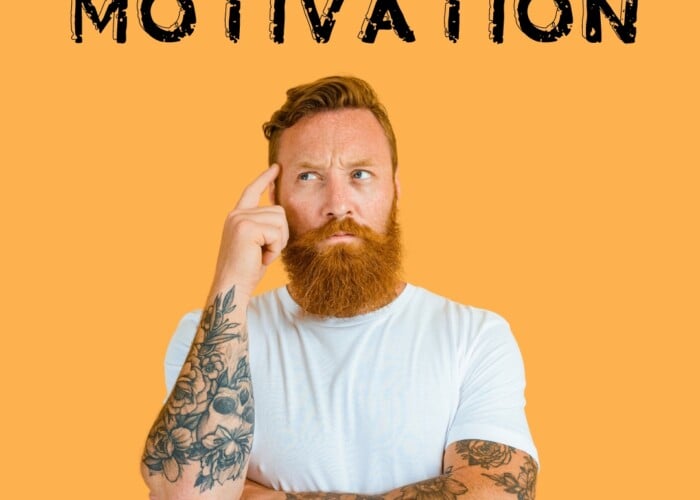
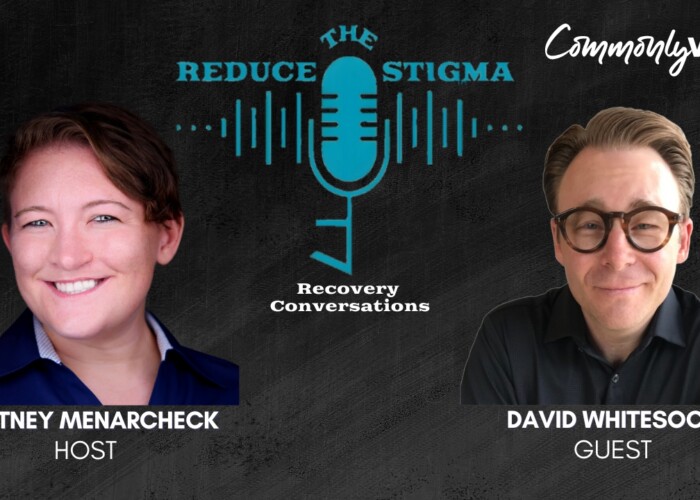
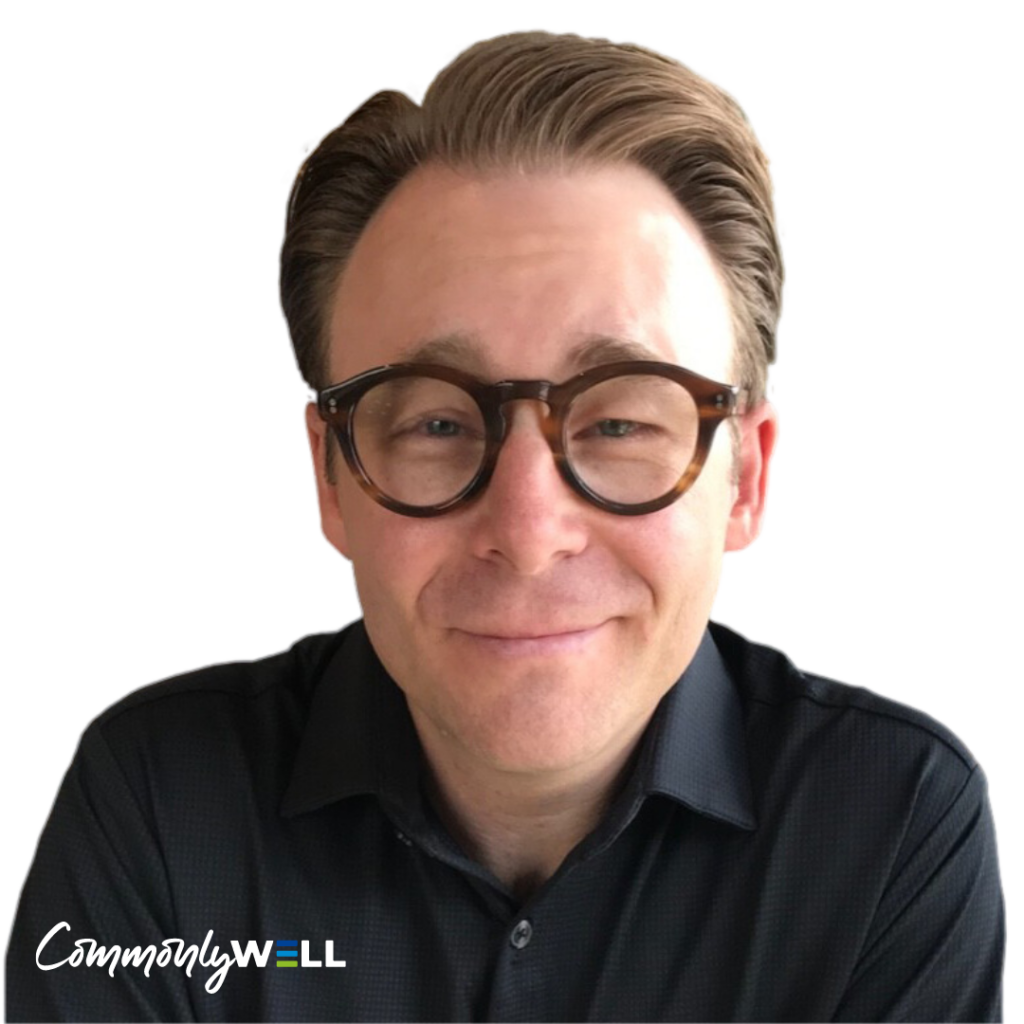
![Image of a mountain range with trees, along with a quote by David Whitestock that reads: "Every single human on the planet has capital that they have to access in order to grow and thrive in the human existence." David Whitestock is identified as the Founder & CEO of Commonly Well, a company focused on reducing the stigma around mental health [STRAIGHTUPCARE.COM].](https://straightupcare.com/wp-content/uploads/2024/07/8.8-capital-grow-thrive-david-whitesock-1024x1024.jpg)
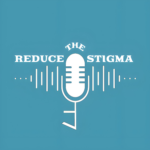

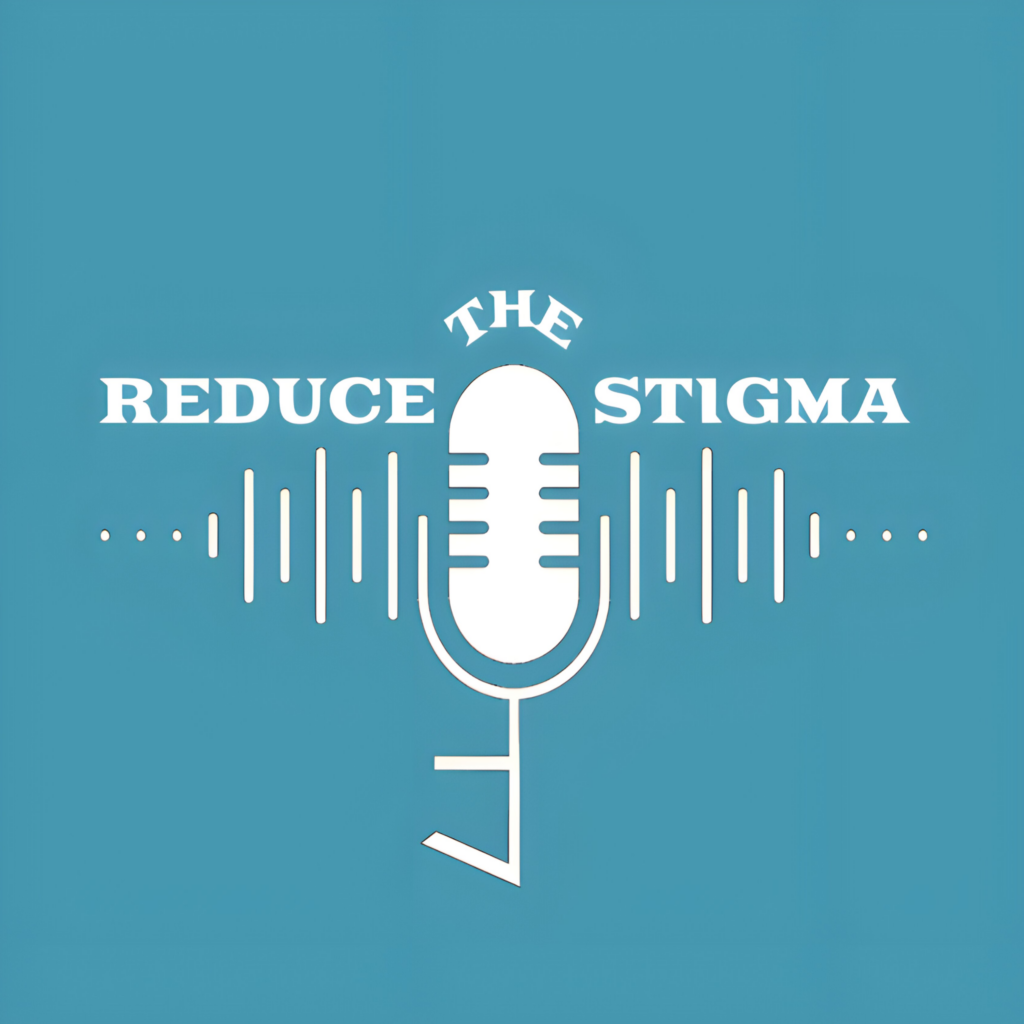


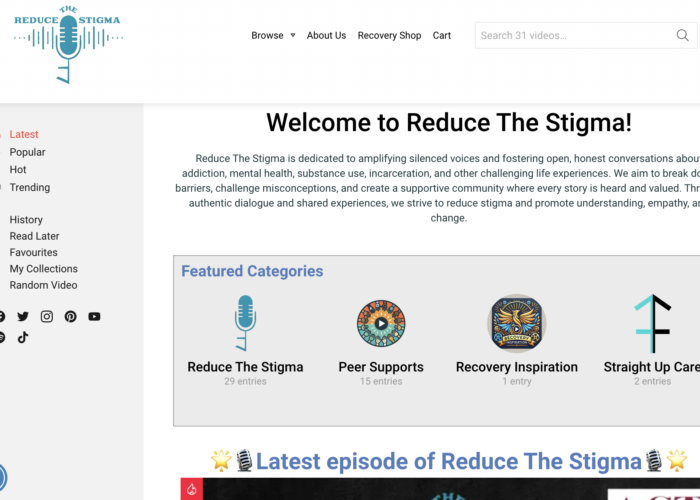
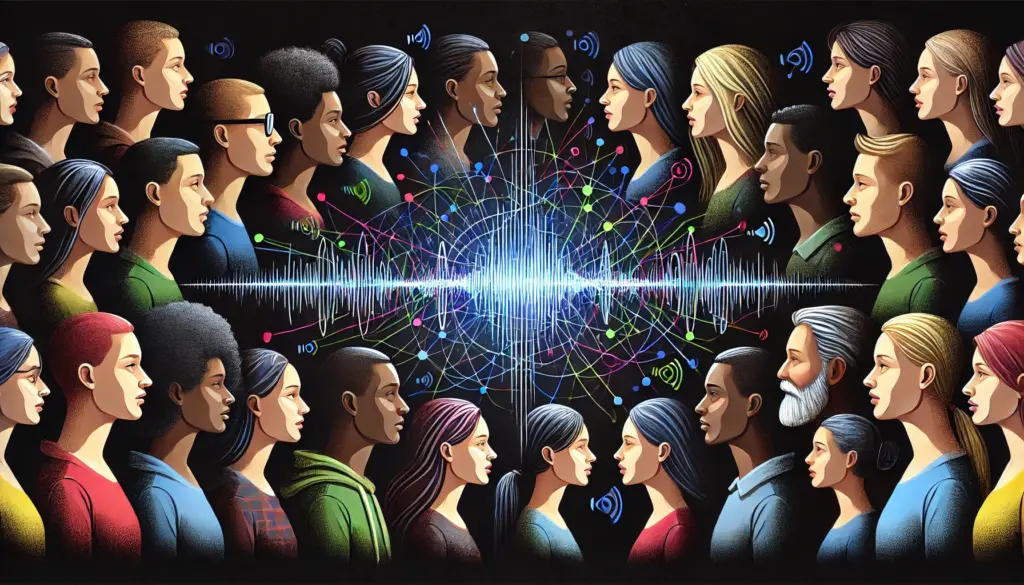
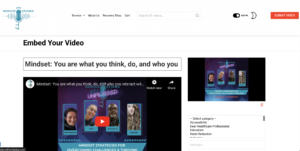 Empowering Storytelling Platform
Empowering Storytelling Platform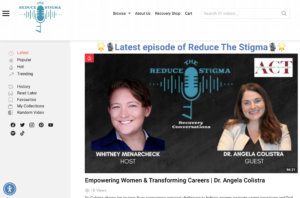 Never Miss The Latest RTS Episode
Never Miss The Latest RTS Episode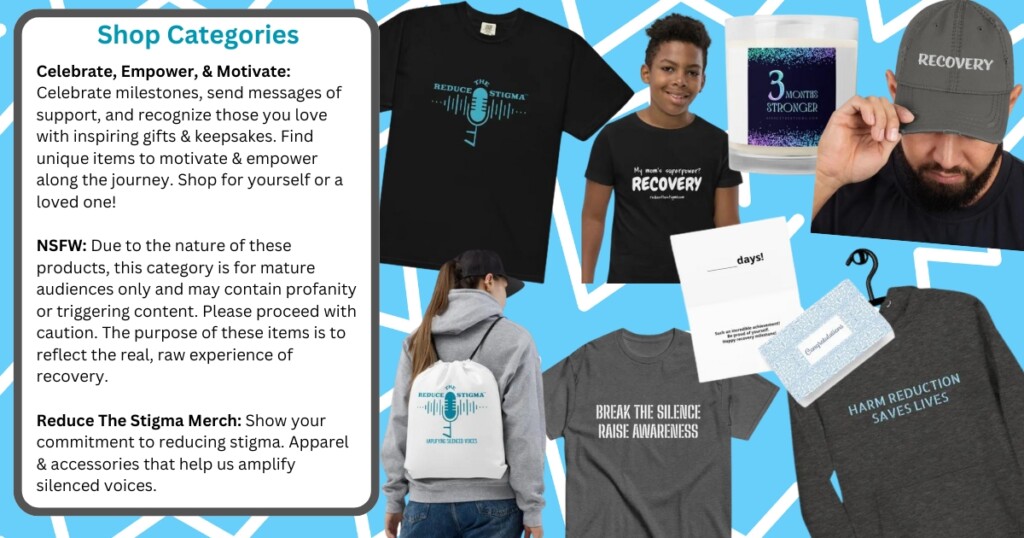
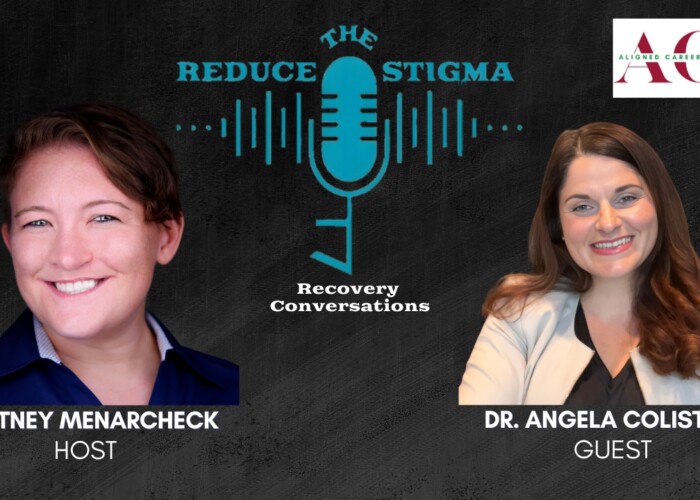
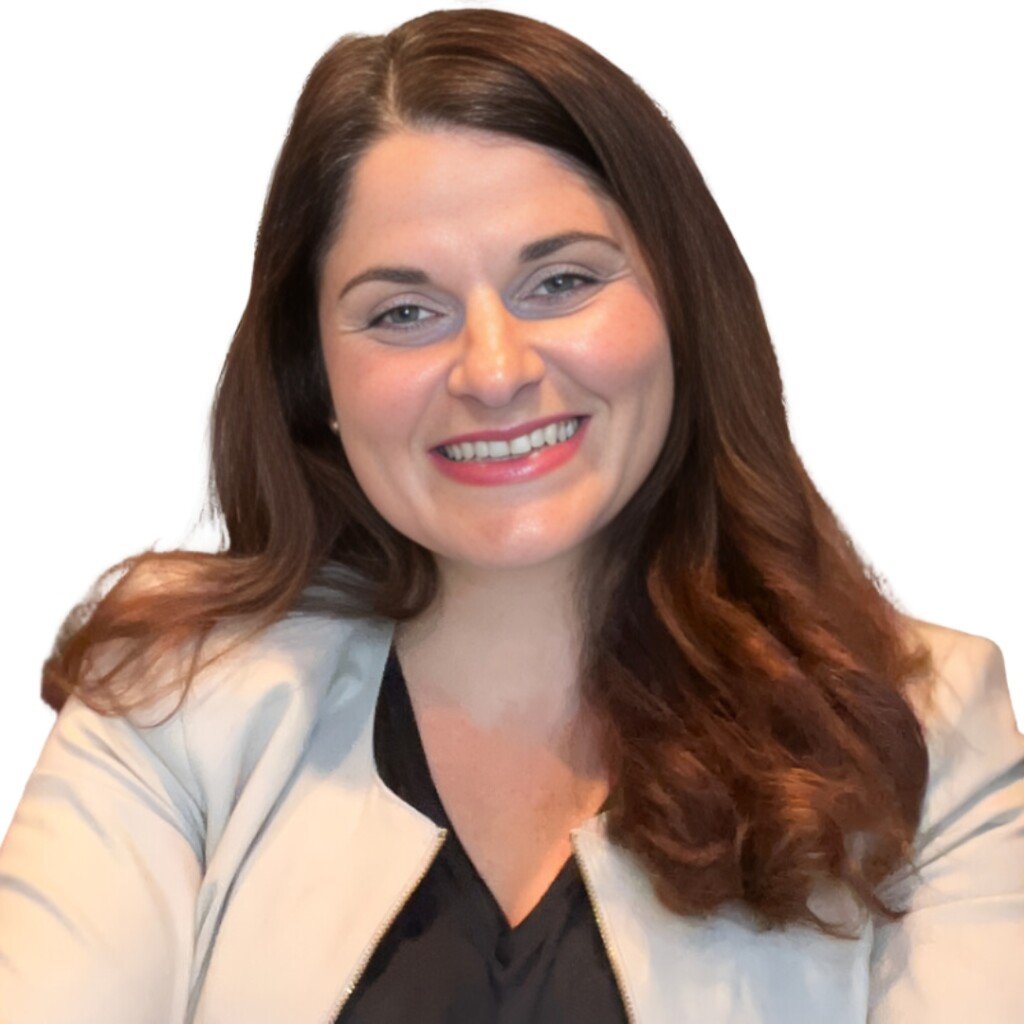
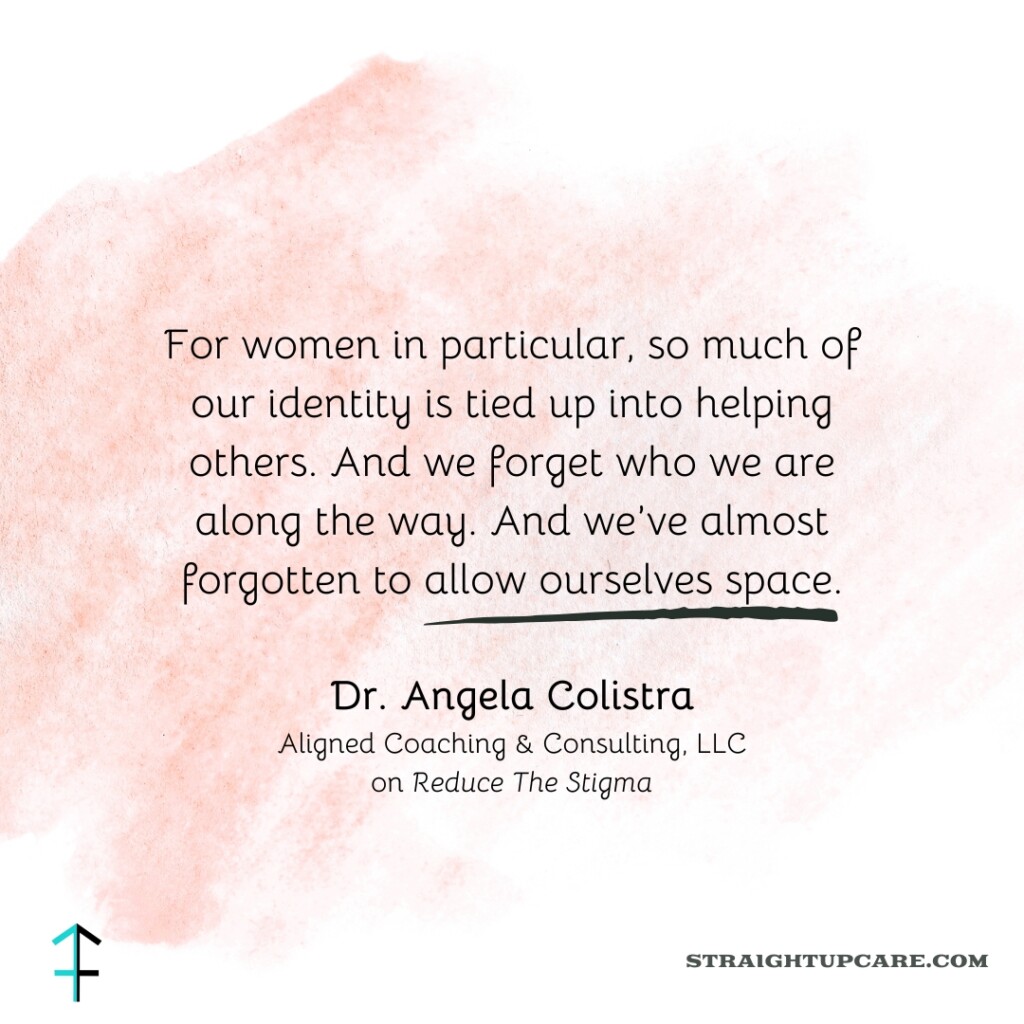

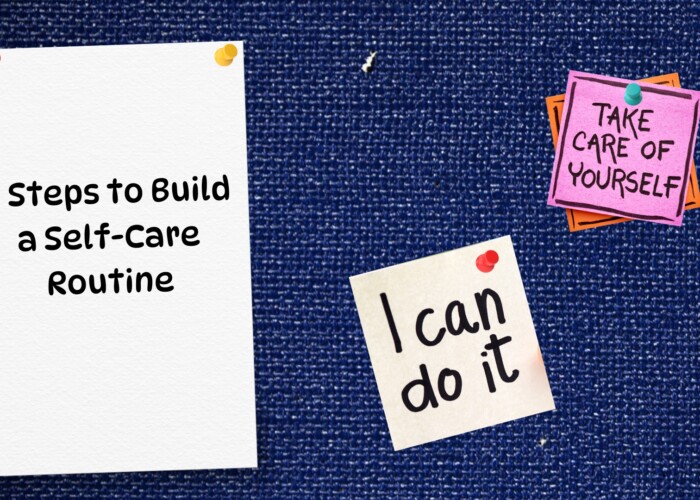
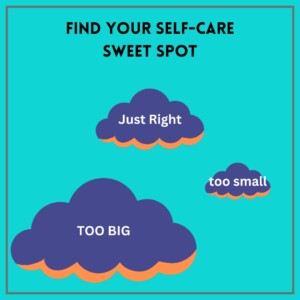 Step 1. Find Your Self-Care Sweet Spot
Step 1. Find Your Self-Care Sweet Spot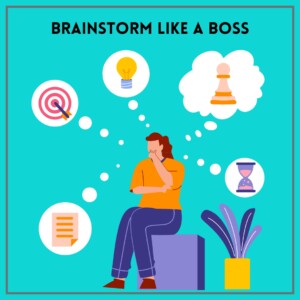 Step 2. Brainstorm Like a Boss
Step 2. Brainstorm Like a Boss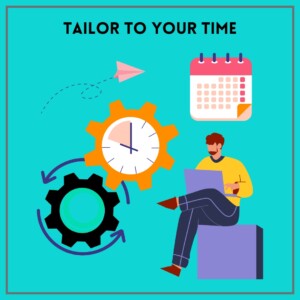 Step 3. Tailor It To Your Time
Step 3. Tailor It To Your Time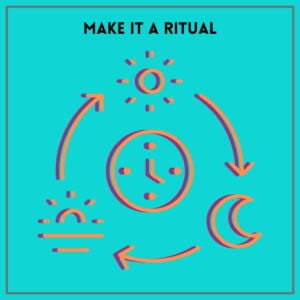 Step 4. Make it a Ritual
Step 4. Make it a Ritual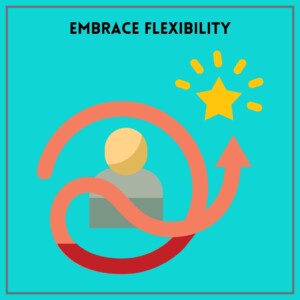 Step 5. Embrace Flexibility
Step 5. Embrace Flexibility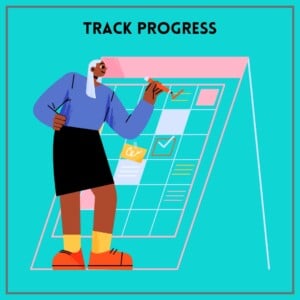 Bonus Tip: Track your progress! Jot down how you feel after each self-care activity. This will help you identify the practices that have the biggest impact on your well-being and refine your routine over time.
Bonus Tip: Track your progress! Jot down how you feel after each self-care activity. This will help you identify the practices that have the biggest impact on your well-being and refine your routine over time.